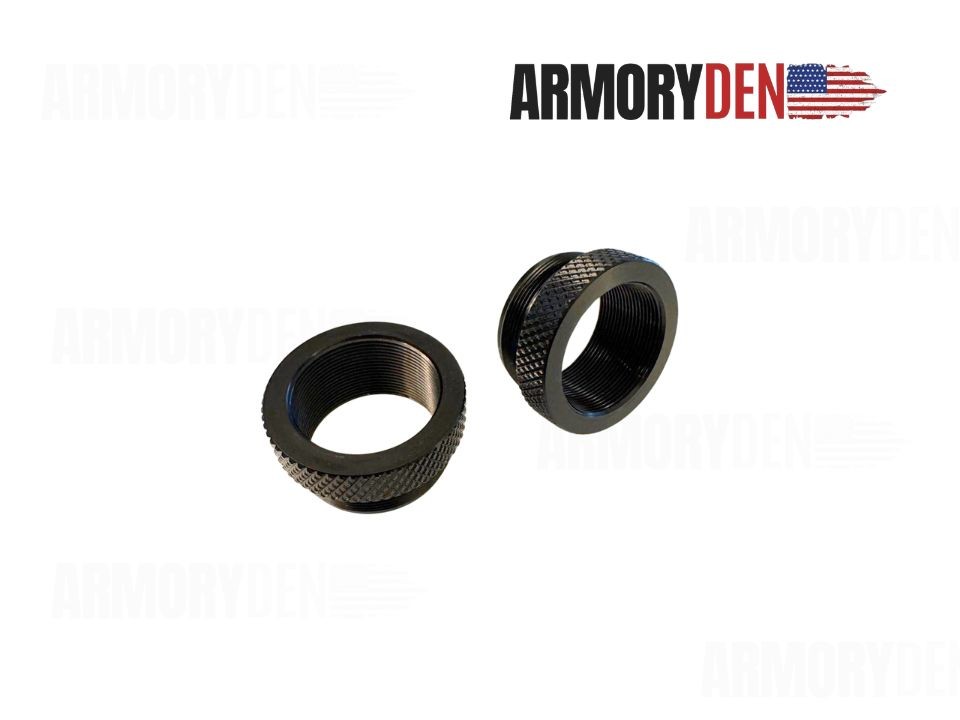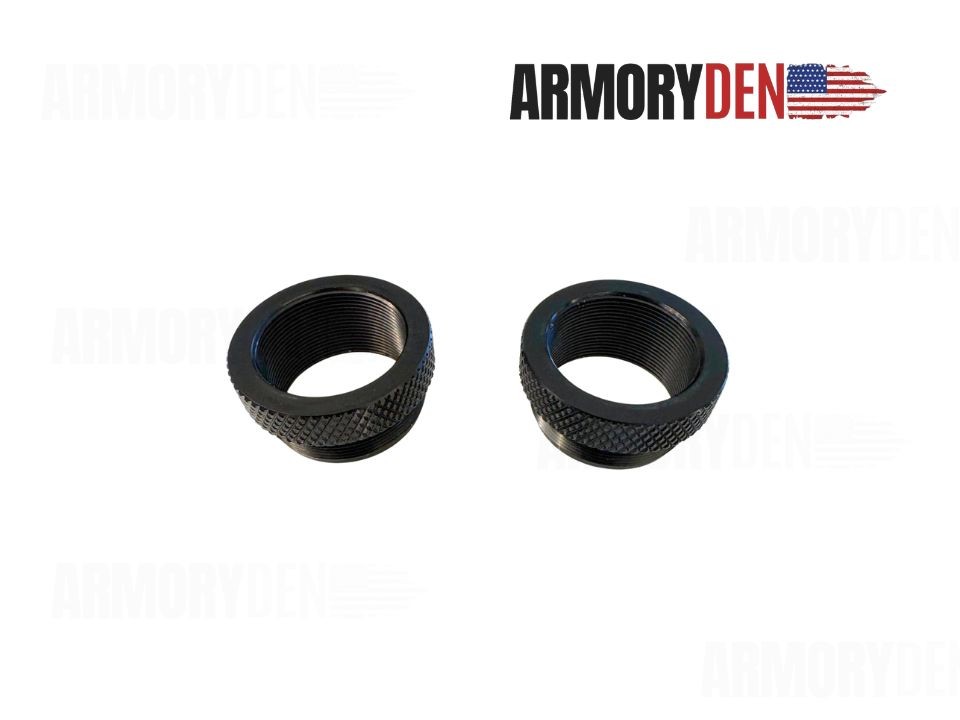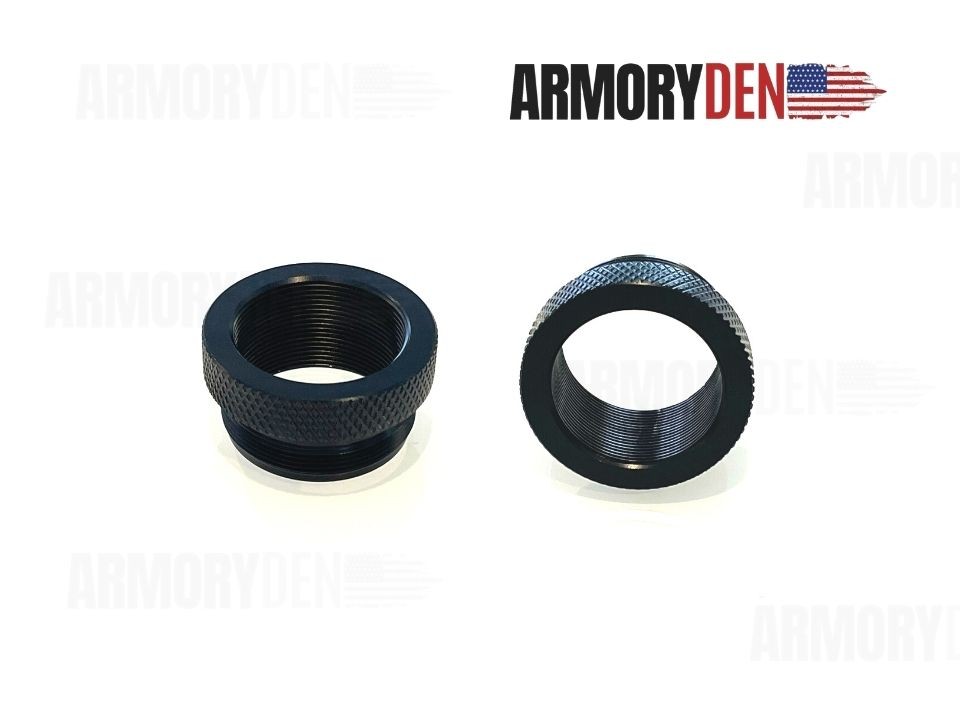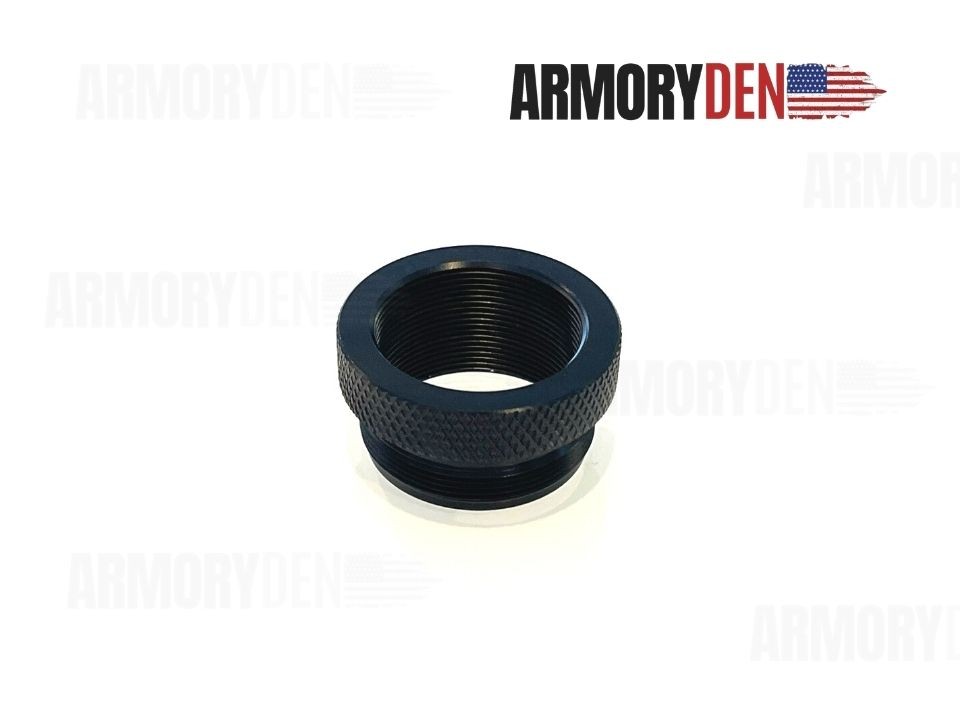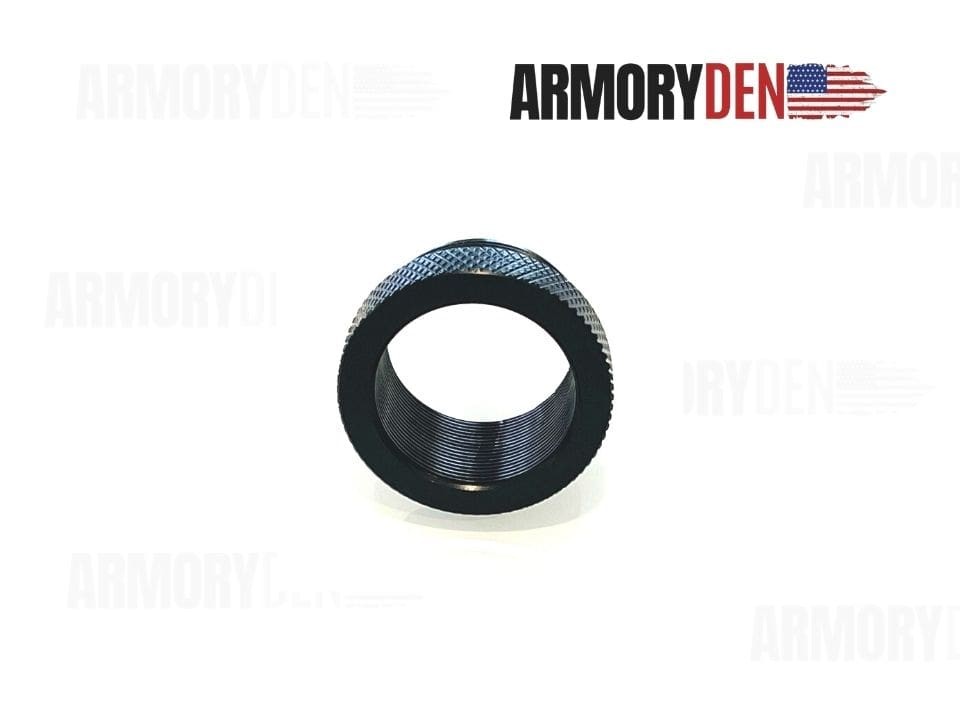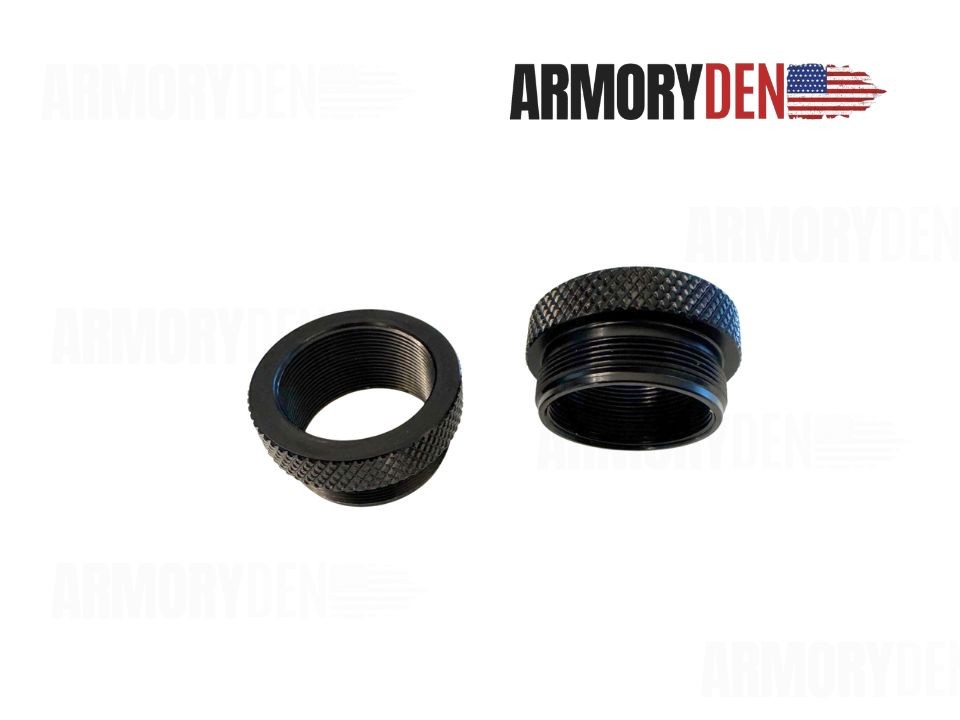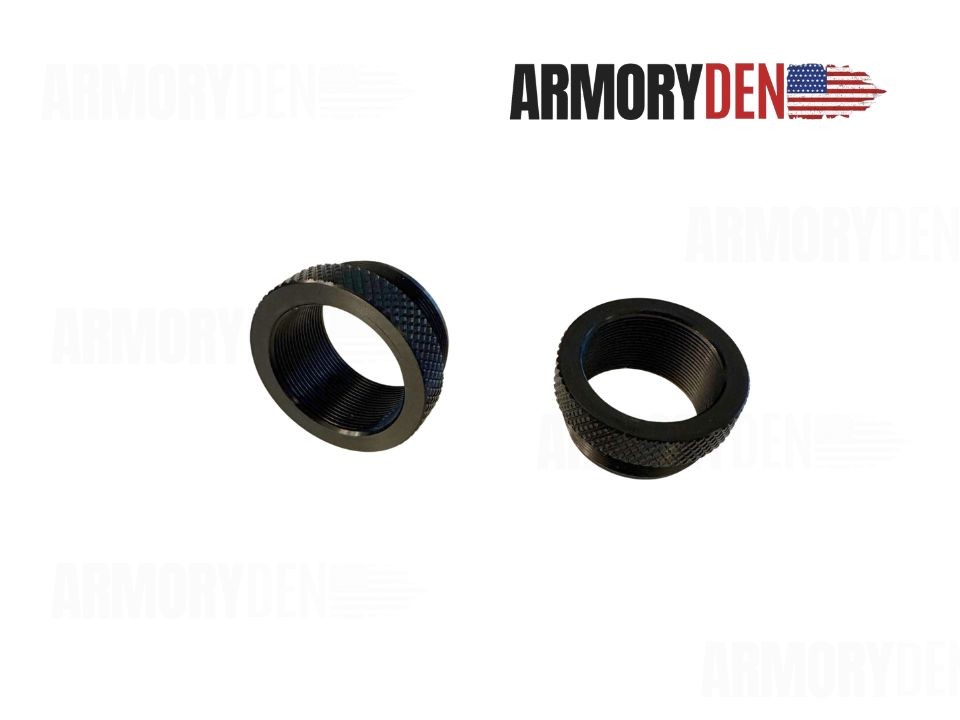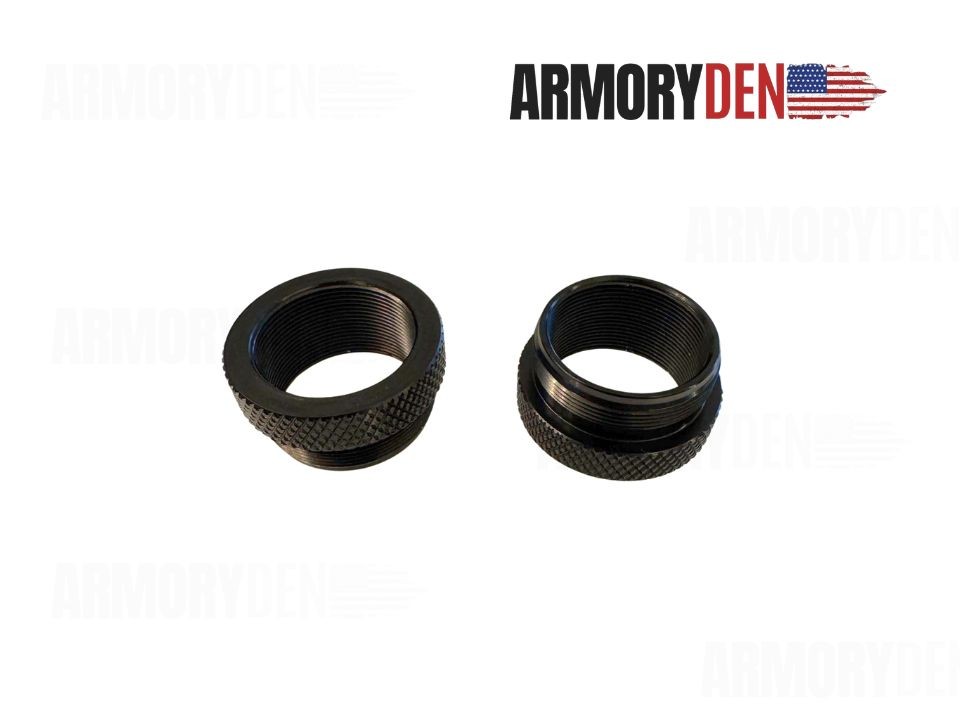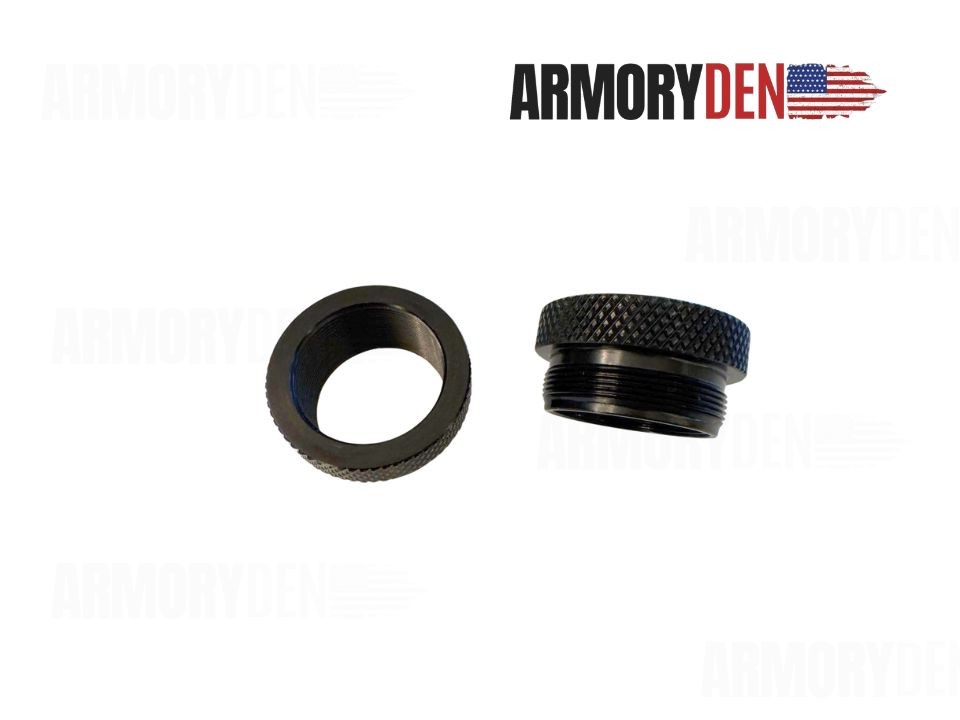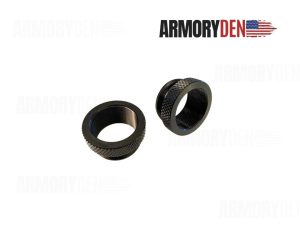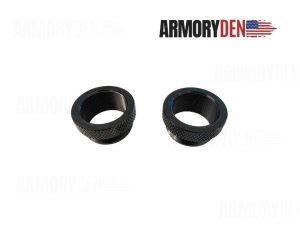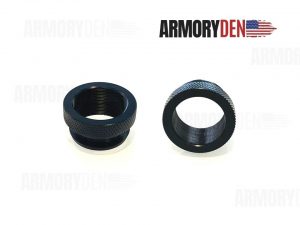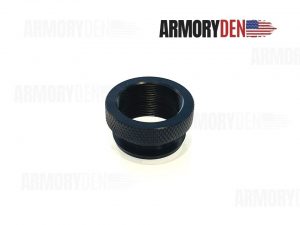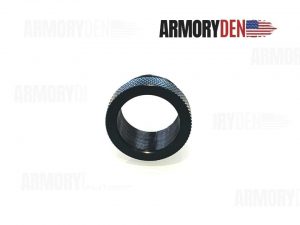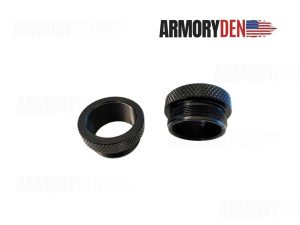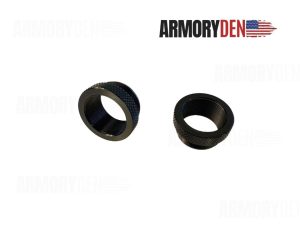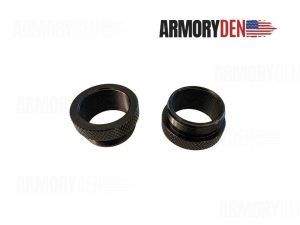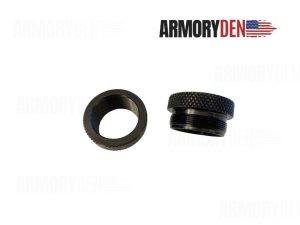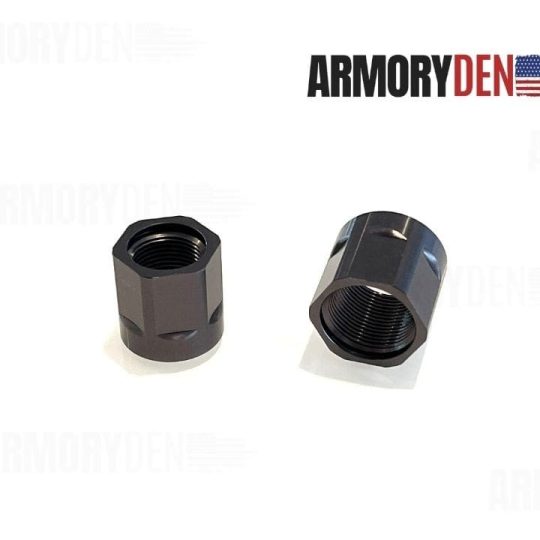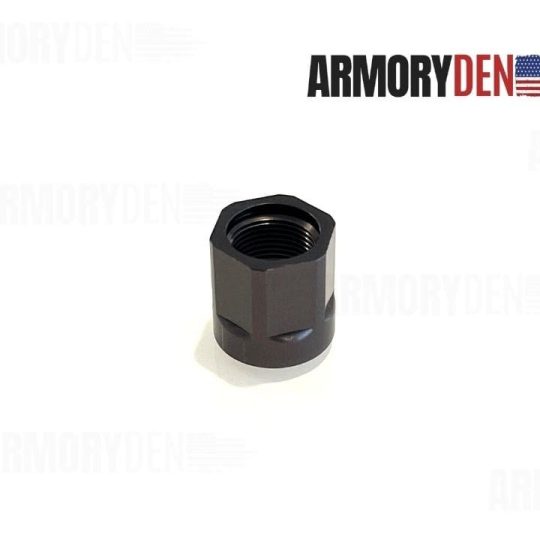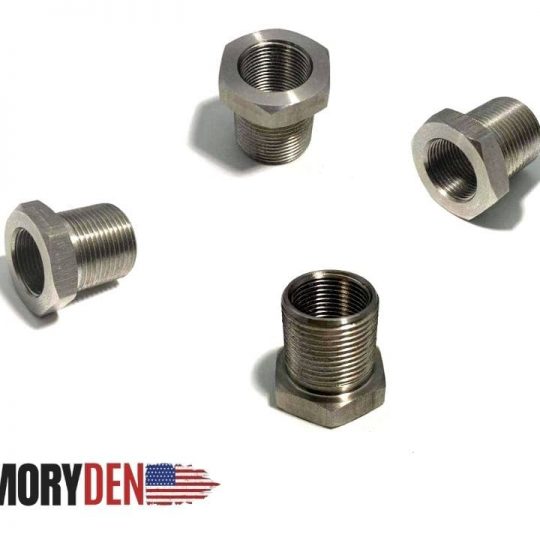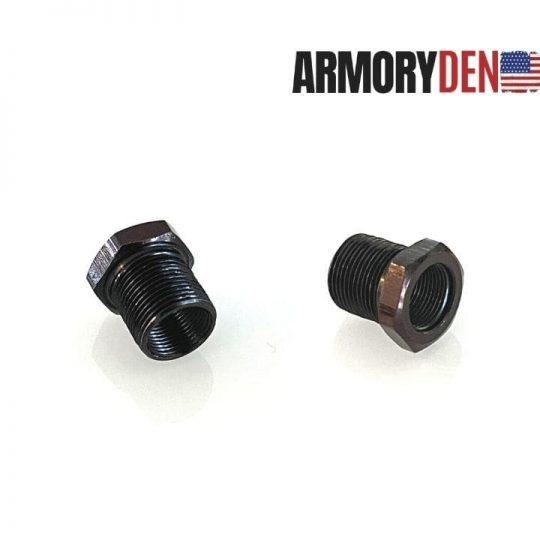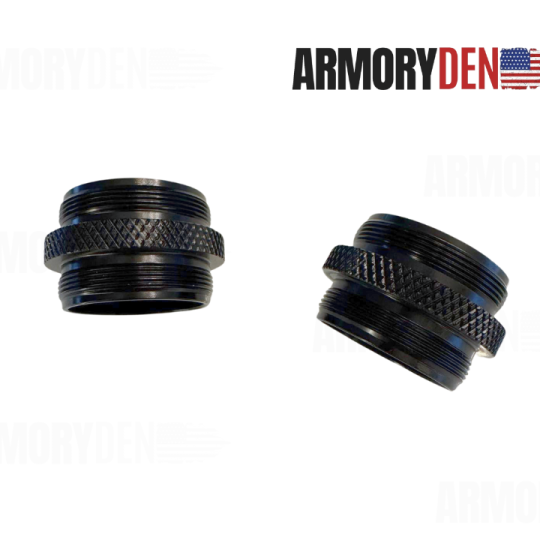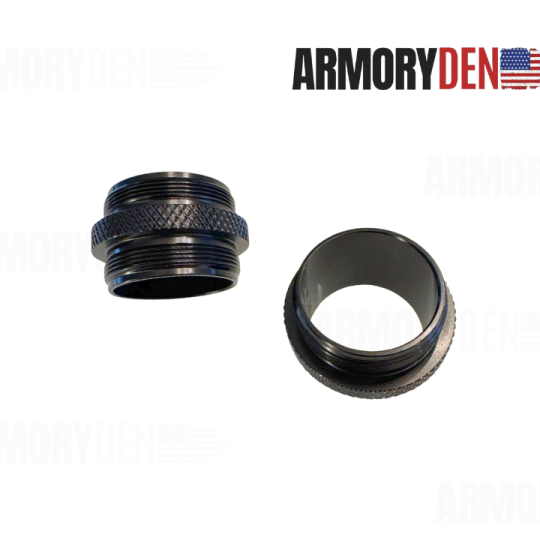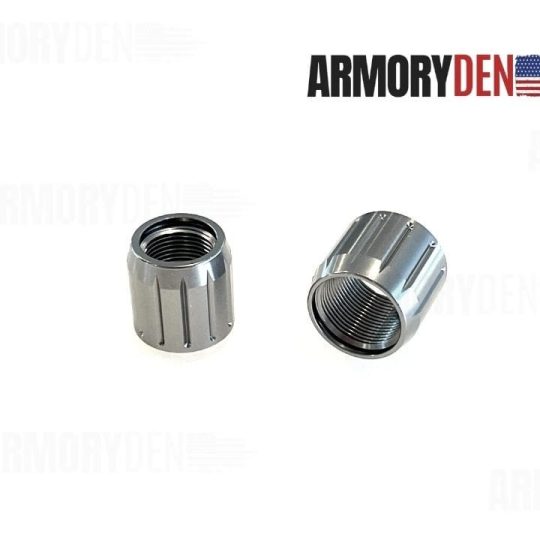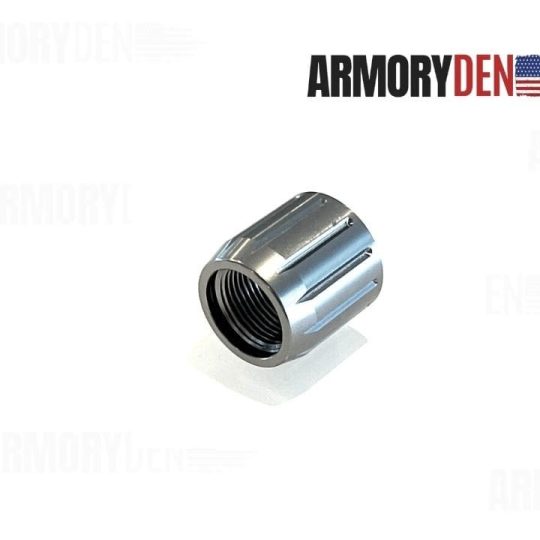Modifications made to solvent traps without an approved tax stamp could be considered a felony. Please be sure to follow all NFA laws and federal regulations, as well as state and local laws within the states you reside.
We encourage all visitors to view our site terms and conditions and our product guides prior to purchasing products on our website.
Modifications to our products void eligibility for return as Armory Den sells solvent traps as firearm cleaning accessories which is a solvent traps intended purpose. Using our solvent traps as a cleaning accessory or storage solution as intended does NOT require any modifications.
CA Health and Safety Code Section Warning: We recommend washing hands thoroughly after handling firearms or related components in conjunction with the use of our cleaning and storage products (such as solvent traps, muzzle extension devices, and other accessories). Handling firearms, firearm parts, cleaning solvents solutions may expose you to lead and other hazardous substances known to the State of California to cause cancer, birth defects, or other reproductive harm. For more information, visit www.p65warnings.ca.gov (CA Health and Safety Code Section 25249.6).
Our goal is to create a fun environment and unique experience for our customers. Solvent traps are effective cleaning accessories to trap cleaning solvents, lubricators, fluids, and other debris that can be harmful to your skin and potentially harmful to the environment. Solvent traps make the cleaning process more efficient and allow you to recycle and dispose of solvent without making a complete mess, and they can double as a dry storage solution.
Solvent traps devices are designed to catch the solvent and debris that are produced when cleaning a firearm. The solvent trap is essentially a filter that is attached to the end of the firearm barrel and captures the dirty solvent that flows out of a firearm during cleaning. The solvent trap can then be separated from the firearm with the debris and solvent inside to dispose of it safely.
The development of solvent traps for firearm cleaning was driven by a need to find a safer, more effective way to clean firearms. Traditional gun cleaning methods involve the use of solvents and other chemicals that can be harmful to the user and the environment. The use of solvent traps allows firearm owners to safely dispose of these chemicals and reduce their exposure to them.
Solvent traps are typically made from materials such as aluminum, stainless steel, or titanium. These materials are lightweight, durable, and resistant to corrosion and durable to reduce wear-and-tear on threads. Solvent traps are designed to be disassembled, which allows for easy cleaning and maintenance. Others are designed to be disposable, which makes them ideal for use in environments where hygiene is a concern.
In recent years, there has been some controversy surrounding the use of solvent traps. It is important to note, however, that the vast majority of people who purchase solvent traps do so for their intended purpose, which is to clean firearms.
There are also some misconceptions about the legality of solvent traps. Some people believe that they are illegal under federal law, but this is not true. Solvent traps are legal to own and use for their intended purpose, which is to clean firearms. However, it is illegal to modify them in any way.
There has been a trend toward making solvent traps more versatile such as dry storage solutions. For example, dry storage and travel storage for hiking and excursions.
The use of solvent traps for firearm cleaning has become increasingly popular in recent years, particularly among firearm enthusiasts and hobbyists. They are a convenient and effective way to clean firearms and storage personal items. They offer benefits over traditional cleaning methods.
For one thing, solvent traps are much safer to use than traditional cleaning methods. They allow gun owners to dispose of solvents and other chemicals safely, without the risk of exposure. They also reduce the number of debris that is produced during the cleaning process, which makes it easier to maintain a clean and organized work area.
Solvent traps are also more effective than traditional cleaning methods. Because they capture the solvent and debris that are produced during cleaning, they allow for a more thorough cleaning of the firearm. This can help to extend the life of the firearm and improve its overall performance.
Cleaning solvents can be hazardous if not handled properly, so please consider the additional safety precautions below when using cleaning solvents:
• Adequate ventilation
• Personal protective equipment (PPE)
• No smoking or open flames
• Avoid contact with skin and eyes
• Storage and handling
• Do not mix solvents/chemicals
• Dispose of waste properly
• First aid knowledge
• Limit exposure time
• Keep products and small parts away from children and pets
• keep solvents/hazardous chemicals away from children and pets
|


